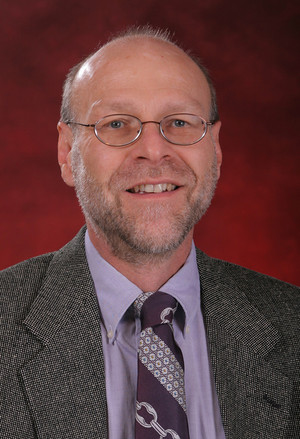CSC academic schools, department chairs reorganizing

CHADRON – The Chadron State College academic departments will look different in 2018-19. Beginning in the upcoming academic year, Academic Affairs has reorganized from 12 to six departments within three academic schools, and the names of two of the three academic schools have been fine-tuned.
There were four purposes for the reorganization of departments, according to Chadron State’s Vice President for Academic Affairs Dr. Charles Snare. The purposes include a more equitable distribution of labor for academic staff, chairs and deans, the advancement of synergies across academic units to promote learner-centered environments, increased professional development of department chairs, and cost savings.
Snare said chairs will rotate on a three-year cycle to assist with continuity, with each year two chairs rotating off and two new chairs rotating on. Initially, the chair positions will begin with two chairs serving for four years, two chairs serving for three years, and two chairs serving for two years.
Two of CSC’s three academic schools have changed their names. The school currently known as Business, Entrepreneurship, Applied and Mathematical Sciences, and Sciences (BEAMSS) will become Business, Mathematics, and Science (BMS). The school currently known as Education, Human Performance, Psychology, Counseling, and Social Work (EHPCPSW) will become Professional Studies and Applied Sciences (PSAS). The School of Liberal Arts retains its name.
Snare emphasized the programs are not changing and the academic programs will still offer the quality instruction that is the hallmark of CSC. The three deans responsible for the schools are Dr. Joel Hyer (BMS), Dr. Jim Powell (PSAS) and Dr. Jim Margetts (Liberal Arts).
Snare said the idea of reorganization began in the 2011 plan: “Re-Imagining Education at CSC: A Plan of the 21st Century.” The 2011 plan resulted in reorganizing various areas, including the functional duties of the deans. That was followed with redeployment of Academic Office Assistants and Professional Staff. Subsequently, the library became the Library Learning Commons and was combined with the newly formed Teaching and Learning Center into the Teaching and Learning Technologies (TLT) unit.
“The changes in higher education accelerated in 2014 with the addition of additional compliance requirements from a variety of entities, including Title IX, state authorization, the United States Department of Education, the Higher Learning Commission, and others,” Snare said. “By 2016 many of these requirements had taken shape and budget reductions in 2016 added another factor.”
Snare indicated that the reorganization was not without its critics. However, Academic Affairs sought out the opinions of students, faculty and staff through a 12-month process.
“I do understand change seldom makes everyone happy and it is difficult. I appreciate the feedback and involvement of so many people,” Snare said.
Snare added the timeline of the reorganization included the opportunity of the Higher Learning Commission’s (HLC) review. HLC’s visiting team gave positive feedback on the reorganization because it fit well with the direction of the Master Academic Plan, assists with meeting the demands of higher education, and positions CSC for the future.
The six chairs for the upcoming academic year are: Dr. Wendy Jamison, Associate Professor and Chair of Mathematical and Natural Sciences; Dr. Wendy Waugh, Professor and Chair of Business; Dr. Shaunda French-Collins, Associate Professor and Chair of Communication, Music, Art, and Theatre; Dr. David Nesheim, Associate Professor and Chair of Justice Studies, Social Sciences, and English; Dr. Don King, Professor and Chair of Professional Studies: Education, Counseling, Psychological Sciences, and Social Work; and Dr. Scott Ritzen, Professor and Chair of Health, Physical Education and Recreation, Family and Consumer Sciences, Range Management, and Military and Science Leadership.
In addition to serving as the lead faculty member and coordinator for departments, the chair is involved with curriculum planning, student retention and recruitment, fostering communication between faculty and administration, financial matters, and professional development.
The department chair serves as the lead faculty member and coordinator on departmental matters. This position organizes department meetings to discuss and assist in implementing initiatives in curricular assessment and catalog revisions, scholarship selections, budget allocations, student retention and recruitment, academic year and summer class schedules, faculty assignments, and strategic plans. The department chair meets regularly with the academic dean and provides input regarding personnel, curricula, equipment, budgets, student and faculty issues, and strategic plans as requested by the dean. The chair also participates in the institution’s communities of learners to foster a culture of inquiry and collegiality, critical self-reflection, evidence based decision making, and a learner-centered environment, in order to forward the mission of the college. The new chair term begins July 1, while the previous chair assists with onboarding until July 30.
In addition to six chairs, some programs will have assistance from program liaisons for annual program assessment reports. Six chairs will also serve as program liaisons, but the remaining program liaisons for the 2018-19 academic year are: Laura Bentz, Art; Scott Cavin, Theatre; Dr. Mary Jo Carnot, Psychological Sciences; Dr. Josh Ellis, Family and Consumer Sciences; Dr. Brooks Hafey, Music; Rich Kenney, Social Work; Dr. Mike Leite, Physical Sciences; Dr. Anthony Perlinski, Rangeland; Dr. Robert Stack, Math; and Dr. Katy Woods, Counseling.
Category: Campus News
